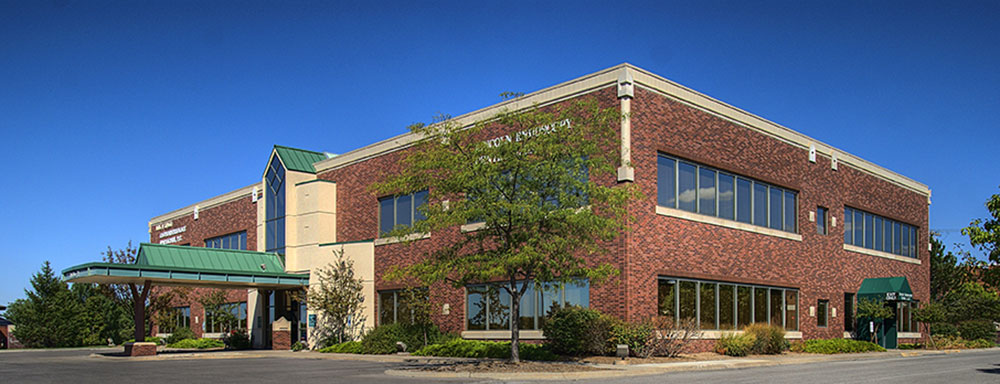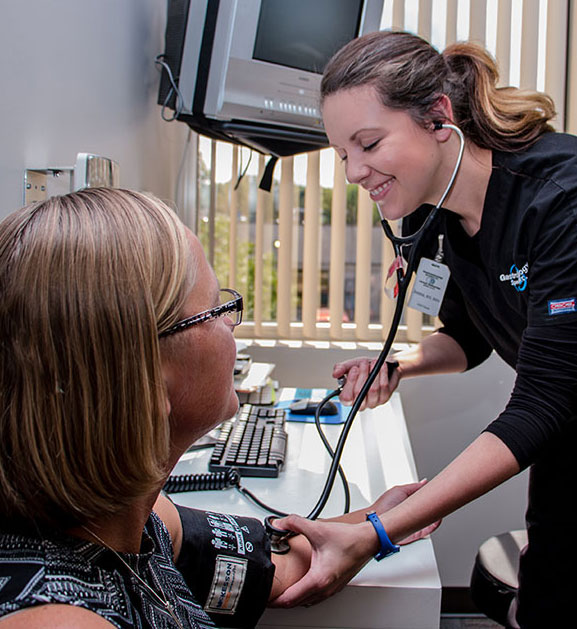We welcome Bridget Easley MS, RD, LMNT as our consulting registered dietitian. Bridget has nearly 10 years of consulting experience and is available to assist patients with various gastrointestinal issues such as, but not limited to, celiac disease, fructose and lactose intolerances, gastroparesis, and IBS. She is also certified in adult weight management and works with individuals suffering from disordered eating patterns. Bridget provides consultations that are tailored to each patient individually. With the various dietary restrictions that are usually recommended with GI disorders, Bridget will help each patient feel comfortable and confident in the changes necessary to decrease symptoms. She is passionate in making sure each patient receives and understands how the recommended dietary changes can be achieved without feeling completely restricted with intakes. Nutritional services are available every Wednesday morning and package specials are available after initial consultation. Please call the office at 402-465-4545 to schedule your consultation and get on track to improving your health!
Colon Cancer Mortality Rates Steadily Declining As More Americans Are Screened
The Los Angeles Times (7/6, Maugh) reports, “Increased screening during the last decade for colorectal cancer, the nation’s second-leading cause of cancer deaths, has put a sharp dent in the prevalence of the disease and in the number of deaths resulting from it,” the Centers for Disease Control and Prevention said Tuesday. As screening for the disease among those ages “50 to 75 increased from half to two-thirds of that population, the prevalence rate fell from 52.3 cases per 100,000 in 2003 to 45.4 per 100,000 in 2007”; and the mortality rate fell from “19 per 100,000 to 16.7 per 100,000,” according to the analysis in CDC’s Morbidity and Mortality Weekly Report.
USA Today (7/5, Brophy) reported that according to the CDC report, new cases “decreased by 66,000 from between 2003 to and 2007, and the deaths rate dropped by nearly 32,000 during that time.” However, at a news briefing Tuesday, CDC Director Dr. Thomas R. Frieden said that although “there’s been ‘a remarkable increase in the level of screening’ over the past decade…the momentum is slowing and numbers appear to be leveling off.” He said that for the “22 million Americans who are unscreened, the doctor-patient dialogue isn’t where it should be. ‘The strongest risk factor is not being told to be screened by your doctor,'” Dr. Frieden said. Numbers of new cases “diagnosed between 2003 and 2007 are from CDC’s National Program of Cancer Registries and National Cancer Institute data”; and deaths are based on information from the CDC’s “National Vital Statistics tracking system.”
The AP (7/6, Stobbe, Writer) reports, colon cancer mortality rates fell by as much as “5 and 6 percent in a few states — Massachusetts, Connecticut and Rhode Island. Mississippi was the only state that saw no real decline.” CDC officials said Mississippi’s lack of progress may be related to a number of factors: Mississippi “had one of the nation’s lowest screening rates, at about 58 percent. Adequate follow-up treatment is also important, as are diet and exercise. Problems in those areas may also plague Mississippi,” officials said. Also, previous research “shows that blacks die of colon cancer at higher rates than other racial groups”; and blacks account for “37 percent of Mississippi’s residents.”
Reuters (7/6, Beasley) reports that North Dakota had the highest number of colon cancer cases per 100,000 people; and Utah had the lowest.
One In Three Adults In US Skips Colon Cancer Screening Follow-Ups
WebMD (6/24, Warner) reported that one in three “adults who have been screened for colon cancer fail to follow up with repeat screenings as recommended, according to a new survey.” Researchers found that “33% of US adults between the ages of 60 and 70 years old have only been screened once for colon cancer; 31% of adults over age 50 have never been screened at all. ‘The survey suggests that people are not being screened at a rate of frequency that reflects adherence to medical guidelines for colon cancer testing,'” says Andrew Spiegel, CEO of the Colon Cancer Alliance, which “co-sponsored the survey with Quest Diagnostics,” in a news release. Notably, the CDC “says 60% of colon cancer deaths could be prevented if people followed guidelines” for routine screening.


